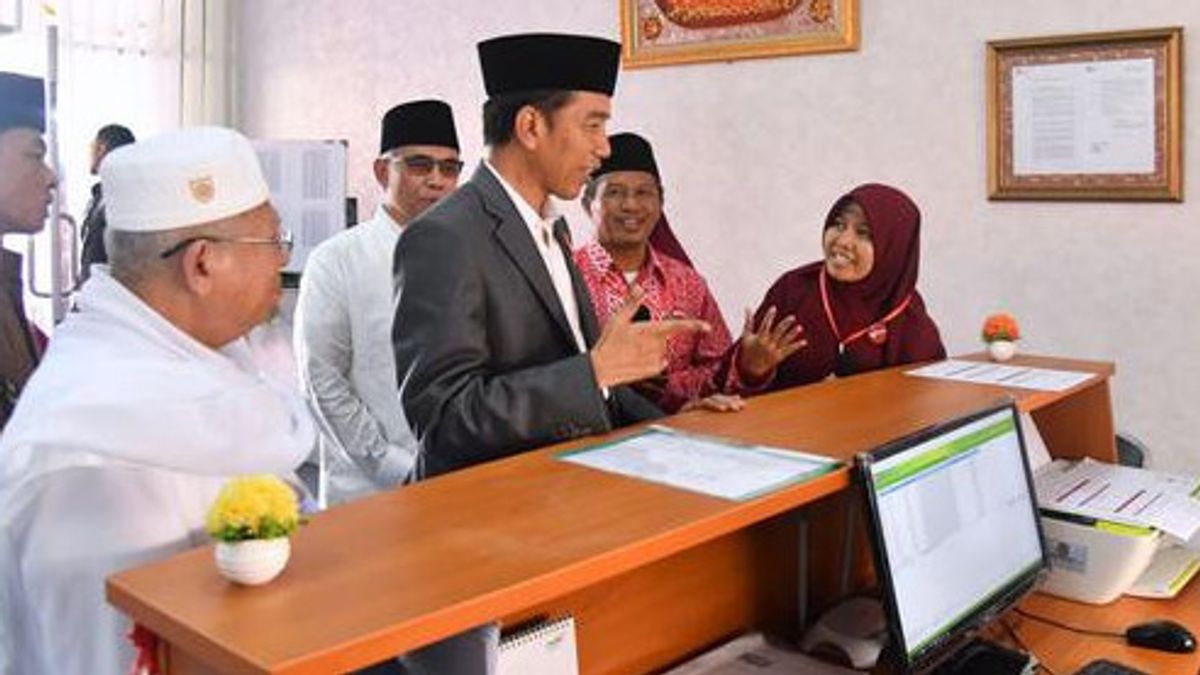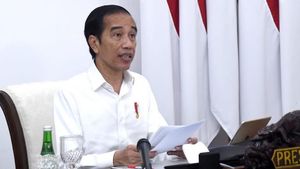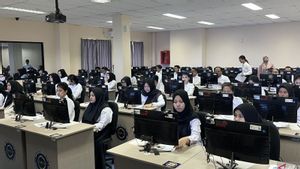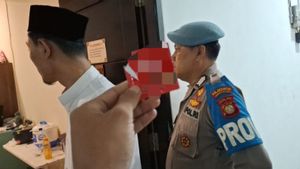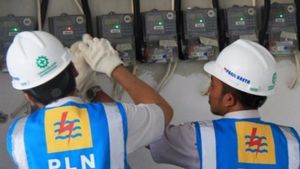JAKARTA - In October 2017 the government through the Financial Services Authority (OJK) started a new breakthrough in the field of financial inclusion by inaugurating the first Micro Waqf Bank program in Cirebon, West Java.
Micro Waqf Bank itself is a Sharia Microfinance Institution (LKMS) that focuses on financing small communities. The capital scheme of the Micro Waqf Bank is also unique.
Each LKMS will receive around IDR 3 billion to IDR 4 billion from donors, where donors can come from all groups or companies with an initial fee of IDR 1 million per person. However, the funds received by the LKMS will not all be channeled into financing, because some will be placed in the form of deposits in Islamic commercial banks.
In Islamic teachings, waqf serves to realize the potential and economic benefits of waqf property for the benefit of worship and to advance public welfare. This is in line with the objectives of the establishment of the Micro Waqf Bank, namely to continue to expand the provision of access to finance and public capital, especially for middle and small communities who are not included in the reach of banks (non-bankable).
The characteristic of the Micro Waqf Bank lies in the mentoring process. Micro Waqf Bank will first hold a selection for prospective customers, then training and mentoring will be carried out as well as financing schemes made by the group or jointly responsible.
The financing scheme through Micro Waqf Bank is unsecured financing with a maximum value of IDR 3 million and a profit-sharing margin equal to 3 percent.
As for the early days of its establishment, Micro Waqf Bank was targeting those in Islamic boarding schools. This strategy aims to help the community in the Islamic Boarding School environment to continue to carry out productive economic activities.
Head to head with Fintech
Due to its nature that reaches out to the small community who do not have access to banking, Micro Waqf Bank (BWM) is often seen as being in contact with financial technology (fintech) type financial service institutions, especially those of the peer-to-peer lending type.
Although working on the same segmentation, there are differences between the two financial institutions.
First, BWM uses sharia principles, the obligation to fulfill yields by customers is very low, still does not use much technology, has a joint responsibility guarantee system, and the loan amount is low.
SEE ALSO:
Meanwhile, fintech has the characteristics of a conventional system, relatively high-interest rates compared to banking, utilizing digital means in activities, without collateral, and the amount of loans is much larger than BWM.
Current development of Micro Waqf Bank
Most recently, the Chairman of the OJK Board of Commissioners, Wimboh Santoso, inaugurated the operation of BWM Al Muayyad and BWM Al Mushoffa witnessed by Solo Mayor Gibran Rakabuming Raka at the OJK Office Solo, Sunday, March 7.
"BWM was established to be able to encourage the economy of the community around the Islamic Boarding School with a very simple concept but very easy for the improvement of micro-businesses around the Islamic Boarding School. We continue to strengthen the benefits of BWM with coaching so that they can raise these micro-entrepreneurs to a higher class," he said in an official statement.
To date, 60 BWMs have been established with a cumulative beneficiary of 41,436 customers and total financing of IDR 60.6 billion. Each BWM will receive around IDR 3 billion to IDR 4 billion from donors who can come from all groups or companies. Funding for BWM customers for the initial stage is IDR 1 million with an administration fee of three percent per year.
The English, Chinese, Japanese, Arabic, and French versions are automatically generated by the AI. So there may still be inaccuracies in translating, please always see Indonesian as our main language. (system supported by DigitalSiber.id)
